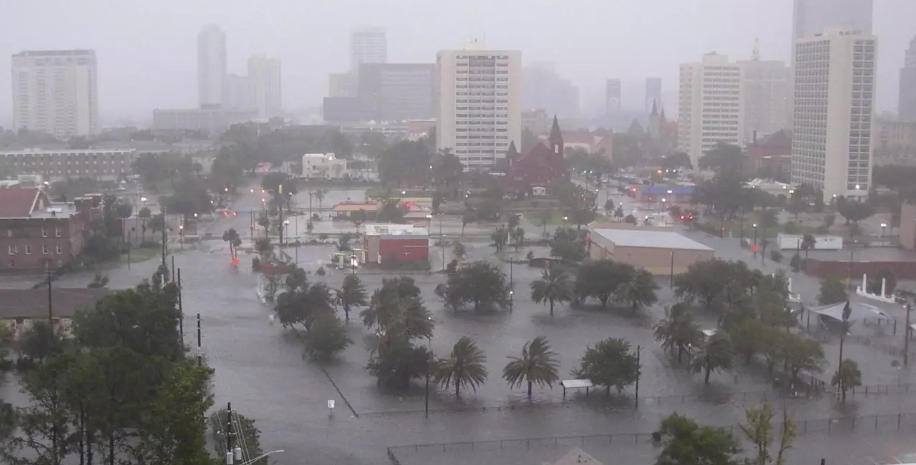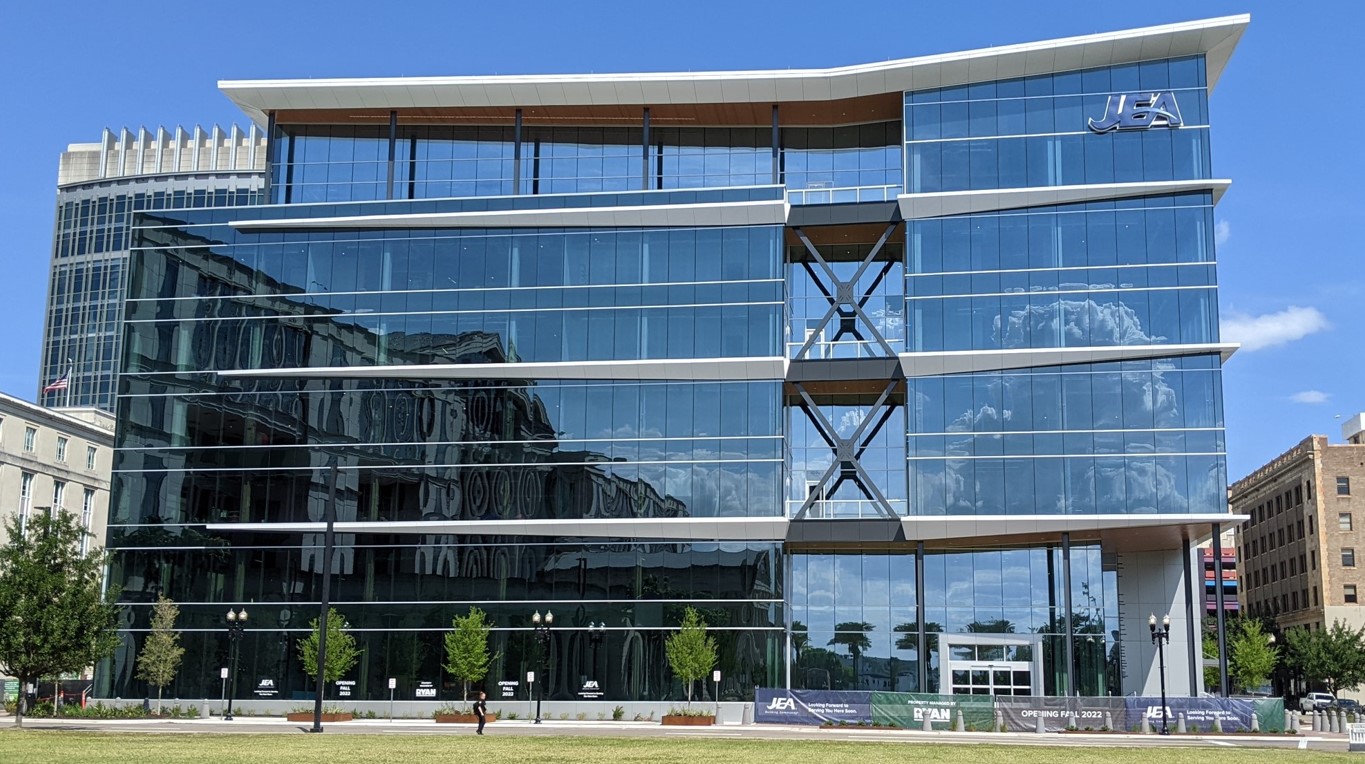J. Logan Cross is the Sierra Club of Northeast Florida Executive Committee Chairman

Renew Jacksonville, or the RenewJax Campaign, is an effort to get Jacksonville to commit to use clean, renewable energy for all operations and services by 2050. Twelve cities in Florida and many cities nationwide have made this commitment, but not Jacksonville. So why haven’t Jacksonville’s city leaders made such a commitment? Better yet, why have they not even discussed the need for such a commitment? Maybe it is because our city leaders are in denial about global warming and the increased frequency of extreme weather events. Such denial allows them to avoid hard decisions regarding reducing the city’s contributions to the phenomenon. The city leaders are not alone in this denial, most of the citizens who voted them into office have followed suit. In other words, we live in a city in denial about climate change, our city’s contributions, and the need to act with urgency to reduce greenhouse gas emissions. A number of factors underlie the lack of global awareness and collective apathy. Let’s explore some of these factors and identify possible courses of action.
For many years Jacksonville’s appeal has, in part, been rooted in a slower pace of life, low cost of living, proximity to vast natural resources, and a degree of isolation from outside influences. There were noticeable season changes, tolerable summer heat, extreme weather events rare, homelessness hidden, and environmental injustice out of sight. JEA was charged with delivering affordable, reliable energy without regard for the social and environmental damage it inflicts. Local waterways and natural areas could be used for waste disposal as long as the negative impacts were not obvious. Property insurance options were plentiful, empowering many to build up to, and sometimes over, waterways and wetlands. The terms “climate change” and “global warming” could be banished from the lexicon and cleansed from public documents without repercussions. Political and corporate leaders with limited vision and a commitment to the status quo were rewarded through reelection and/or salary bonuses. Citizens who advocated for actions to protect the environment and/or the need to address social injustices were conveniently labelled as malcontents or nut-cases. In sum, many in the region were satisfied with the status quo, resistant to change, and willfully ignorant of matters outside the region.
Continued willful ignorance remains an option, but it denies the reality the planet is warming at a rapid pace and will continue doing so unless greenhouse gas emissions rapidly decline. The average surface temperature in 2021 was 1.51°F warmer than the twentieth-century average and 1.87˚F warmer than the pre-industrial period from1880 to 1900. The nine years from 2013 through 2021 rank among the warmest years on record. If greenhouse gas emissions continue unabated, the planet’s average temperature could be between 2 and 9.7°F warmer in 2100 than it is today. Here in Northeast Florida the season changes are now barely detectible, morning frost is a rarity, and winter wear gets limited use. Summers are now extremely hot, air conditioning a necessity, and extensive heat exposure a health threat. Hurricanes and tropical storms are more frequent and more intense. Flooding during storms and on sunny days is becoming commonplace. Storm surge, once an interesting metric, is now the driver of intense flooding in all waterways in the region. The pace of beach and dune erosion is outpacing restoration efforts and funding. Property and flood insurance options are limited and the policy costs escalating. Even if you are in denial about climate change, these changes are hard to ignore.
If you need more convincing, consider the damage climate change inflicts on the St. Johns River, the city’s greatest asset. Sea level rise due to global warming is translating to salt water intrusion, extensive brackish water, and damage to many components of the freshwater ecosystem. The rising water temperature is leading to the decline of native plants and aquatic life essential to river health. The temperature rise is also creating the conditions for frequent, intense algal blooms. Such blooms are fueled by lawn fertilizer runoff and septic system leakage. If this is not enough, our all-knowing leaders authorized and funded port dredging which exacerbated salt water intrusion, storm surge, and inland flooding. Further, the dredging is justified by the addition of port jobs which will likely be lost to automation. Is this an example of willful ignorance, stupidity, or simply greed?
As mentioned earlier, the Jacksonville Electric Authority (JEA) has been allowed to pollute at will since its inception as long as it produced affordable and reliable electricity. It has not been required to evolve or innovate, so it languishes and continues to rely on highly-polluting, expensive fossil fuels for energy generation. In a time when most large utilities are transitioning to clean, renewable energy sources, JEA derives 1.5% of its electricity from renewable sources. Save for automobile emissions, JEA is the primary source of the city’s greenhouse gas emissions in the region. The utility emits more than seven million megatons of greenhouse gases per year. Its coal-fired Northside Generating Station alone accounts for 60% of the JEA annual emissions. There are currently no plans or timelines for reducing JEA’s reliance on fossil fuels for energy generation or to convert to renewable energy sources. Thus, JEA’s greenhouse gas emissions will likely continue unabated. So how has JEA been allowed to stay on this trajectory? Because city leaders and the citizenry have not demanded it do otherwise. Similarly, the JEA Board of Directors seem satisfied with the status quo as long as the utility remains financially solvent.
It is important to acknowledge the city’s efforts to increase its resiliency to extreme weather events. Though decades behind other cities, Jacksonville leaders finally acknowledged the need to build resilience to extreme weather events and approved funding to address resiliency-related matters. While these moves are essential and commendable, they are a band-aid applied to the symptom of a much bigger illness, global warming. Had our city leaders experienced an epiphany, they would also be pondering what is driving the need for increased resiliency. Global warming would be acknowledged and there would be discussions regarding the necessity to stem its advance. There would also be discussions about how conversion to clean, renewable energy sources presents an opportunity to reshape the regional economy by capitalizing on the transition to renewable energy sources. In reality, though, it is doing none of these things.
Given the rapid increase in global warming and the dire consequences of inaction, efforts by the city leaders to maintain the status quo borders on negligence. City leaders should acknowledge global warming and take steps to reduce the city’s contribution to its advance. In reality, though, they will not do these things until forced to do so. It is time for regional organizations and individuals to demand city leaders acknowledge reality and act responsibly. Global warming has changed Northeast Florida and will continue to do so if unabated. Residents can either acknowledge this and act to stem its advance or cling to the belief global warming is part of a climate cycle that will eventually return to what was once considered normal. If you believe global warming is real and should be addressed, ask city leaders to reduce our city’s greenhouse gas emissions and transition to clean, renewable energy sources. Vote for candidates who are connected to reality and will address emerging issues such as global warming. Write opinion pieces conveying your views for local publications. Join and assist initiatives such as RenewJax Campaign and/or its supporting organizations.
Though a decrease Jacksonville’s greenhouse gas emissions alone will not change the trajectory of global warming, the combined efforts of many cities can. So demand our city leaders commit Jacksonville to operate on 100% clean, renewable energy for all operations by 2050. The time is right for change in Jacksonville, so please get involved and make your preferences known.

